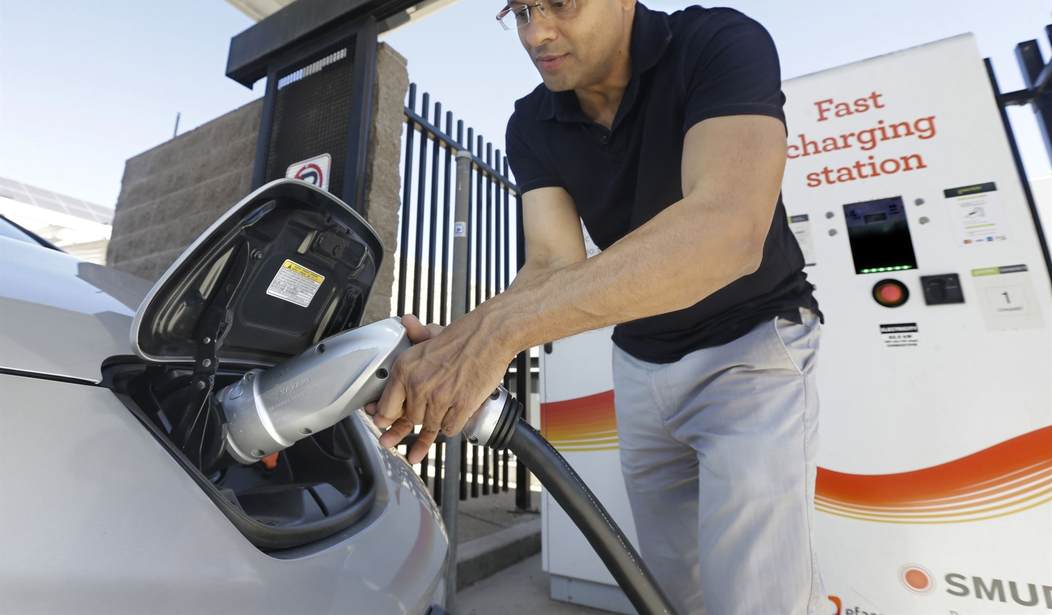New York is only the latest state to schedule a ban on the sale of gas-powered vehicles and move toward all-electric vehicles in a relatively short period of time. They join California and several other states in either implementing this sort of change or undertaking studies that will lead to the same result. We’ve already examined the issues that many drivers of EVs have been running into when trying to find charging stations to keep their cars and trucks rolling, particularly in wide, rural regions. But an entire class of other drivers is facing similar difficulties even in cities where charging facilities are supposedly more abundant. Renters are having a tougher time taking care of their charging needs, and that’s a fairly major issue in a country where basically half of the adults are renters. (Associated Press)
Stephanie Terrell bought a used Nissan Leaf this fall and was excited to join the wave of drivers adopting electric vehicles to save on gas money and reduce her carbon footprint.
But Terrell quickly encountered a bump in the road on her journey to clean driving: As a renter, she doesn’t have a private garage where she can power up overnight, and the public charging stations near her are often in use, with long wait times. On a recent day, the 23-year-old nearly ran out of power on the freeway because a public charging station she was counting on was busy.
“It was really scary and I was really worried I wasn’t going to make it, but luckily I made it here. Now I have to wait a couple hours to even use it because I can’t go any further,” she said while waiting at another station where a half-dozen EV drivers circled the parking lot, waiting their turn.
I will confess that this issue hadn’t occurred to me before, probably because I’m a homeowner. (Plus the fact that I neither own nor have any interest in owning an EV.) But when you think about it, it makes sense. I have outdoor electrical outlets on my front porch and back deck, so if I needed to plug in my car it really wouldn’t be an issue. But if you live in an apartment building, particularly on one of the upper floors. you may be unable to simply dangle an extension cord out the window overnight to recharge your car.
There is also the question of the costs being incurred for all of this juice. Regardless of what the environmentalist seem to believe, electricity doesn’t just magically appear in electrical outlets and it’s not free. If you have a bunch of people recharging their massive car batteries every night, the utility costs for the property are going to rise significantly. Those costs wind up being passed on to the renters, but how is that going to be apportioned fairly? Why should renters who drive cars with gasoline engines bear a portion of the costs incurred by the EV owners?
As the linked report notes, renters are, on average, more likely to purchase an older, used EV than one of the newest models because most people still can’t afford the latest and greatest. The older models have a shorter maximum range using a single charge, so greater access to charging stations is even more critical for them. Then there is the matter of congestion, particularly in densely populated urban areas. Looking at any given street in New York City, you can see upwards of 100 cars parked on any given block most of the time. If all of those were electric vehicles, you would need a massive number of chargers to keep up with the demand. Obviously, people who can’t find a free port are going to start unplugging other people’s cars and plugging in their own. That will lead to some unpleasant surprises when people get up to go to work in the morning.
This just seems like yet another “brilliant” plan that was cooked up by environmentalists to “save the planet” but wasn’t fully thought through. The availability of gas stations across the country evolved organically as the number of vehicles on the roads rose and the demand for gasoline expanded. Forcing the entire nation to rapidly shift to EVs in a relatively brief space of time will not allow the same to happen with EV recharging options. And as we’re already seeing, this new system has a lot of complications built into it that a gas-powered fleet does not.








Join the conversation as a VIP Member